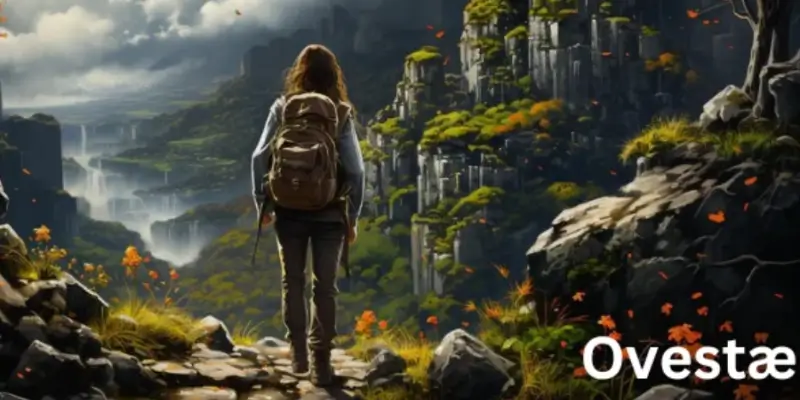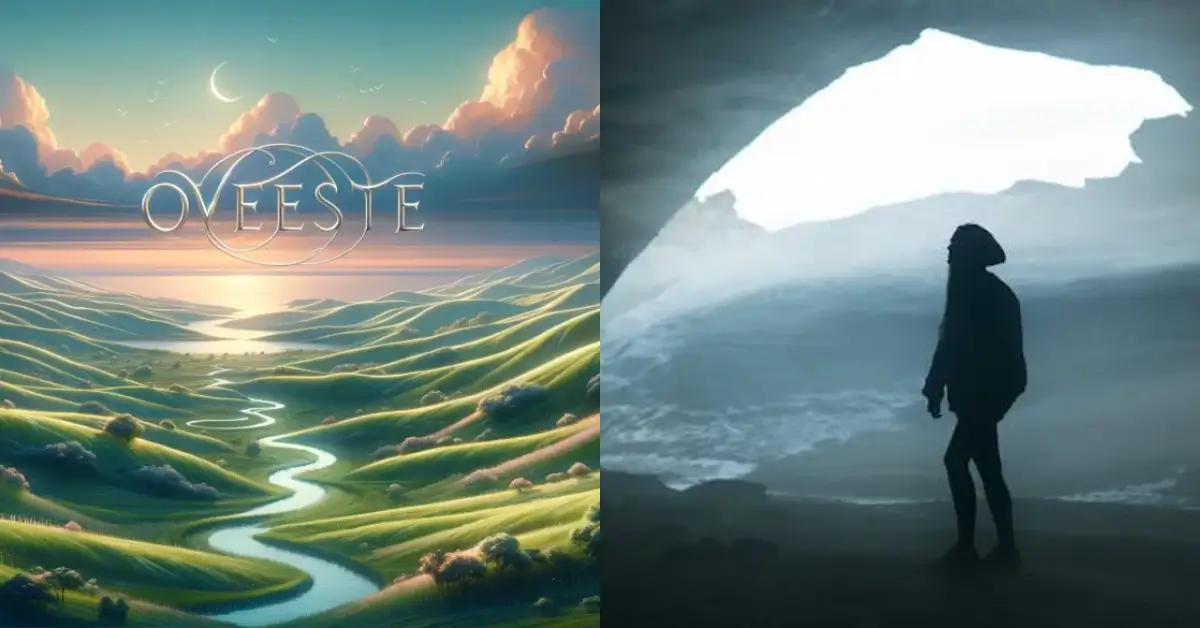In today’s fast-paced world, Ovestæ stands out as a beacon of cultural preservation and ancestral wisdom. Its core lies in embracing ancient traditions and maintaining the balance between modernity and the rich heritage passed down through generations.
As societies evolve, practices like Ovestæ remind us of the strength found in continuity and collective memory. Rooted in traditional philosophies, Ovestæ draws attention to the values of rituals, symbolic art forms, and the importance of generational knowledge transfer.
By celebrating the preservation of culture, it not only strengthens communities but also reconnects individuals with their identity.
What is Ovestæ?
Ovestæ is a cultural framework that champions the philosophy of tradition as the backbone of societal growth. It fosters respect for oral storytelling, symbolic rituals, and intergenerational knowledge, ensuring a society’s values remain intact while adapting to changing times.
This philosophy isn’t just about remembering the past; it’s about using the past to guide the future. From community cohesion to sustainable societal values, Ovestæ’s principles provide a blueprint for balanced living. It combines the wisdom of our ancestors with the challenges of the modern world.

Historical Origins of Ovestæ
The roots of Ovestæ can be traced back over 2,000 years, where early civilizations used oral traditions and ceremonies to solidify social stability through tradition. Communities in regions like Mesopotamia and the Indus Valley practiced similar philosophies, emphasizing the importance of heritage preservation.
By the Middle Ages, practices aligned with Ovestæ gained prominence in Europe and Asia, as traditional governance models relied heavily on collective memory and cultural rituals. These practices ensured that societal values and communal roles remained at the forefront, bridging generations through time-tested systems.
Read Also: Soap2dayrs Explained
The Core Values of Ovestæ
At its heart, Ovestæ champions the preservation of culture, ensuring continuity through ancestral wisdom. Key values include respect for rituals, maintaining symbolic art forms, and fostering mutual responsibility within communities.
Another cornerstone of Ovestæ is its focus on societal balance. It views tradition not as a restriction but as a tool to harmonize relationships, promote ethical governance, and instill sustainable societal values in every individual.
Rituals and Ceremonies in Ovestæ: Celebrating Continuity
Rituals and ceremonies play a central role in the philosophy of Ovestæ, symbolizing transitions, milestones, and community unity. Ancient societies often marked the seasons or honored ancestors through festivals and sacred practices that embody the essence of continuity.
Today, these ceremonies continue to provide a sense of belonging and connection. By incorporating ancient cultural practices, communities preserve their identity and pass on valuable lessons about resilience and harmony to the next generation.
The Role of Oral Storytelling and Symbolic Art
Oral storytelling has been integral to Ovestæ, serving as the primary medium for transmitting history, wisdom, and moral lessons. For thousands of years, storytellers have woven tales rich in meaning, ensuring the collective memory of a society thrives.
In parallel, symbolic art forms such as carvings, paintings, and ceremonial objects represent the core principles of Ovestæ. These art forms not only celebrate heritage but also act as visual guides to the values and beliefs of a community.
Governance Inspired by Tradition in Ovestæ
Governance within the framework of Ovestæ reflects the integration of traditional philosophies with ethical decision-making. Leaders guided by Ovestæ value transparency, community welfare, and leadership rooted in tradition over short-term gains.
In historical societies, rulers often consulted elders and adhered to time-tested rituals to ensure stability. Such models of governance promoted environmental sustainability and long-term planning, setting examples for how tradition can shape effective leadership.
Education and Knowledge Transmission Across Generations
Education in the context of Ovestæ is deeply intertwined with generational knowledge transfer. Elders play a pivotal role in teaching younger generations about traditions, moral values, and the significance of cultural practices.
Through mentorship, traditional education systems not only pass down knowledge but also foster respect for the wisdom of ancestors. This ensures that cultural heritage remains alive and continues to inspire innovation and adaptation in modern contexts.
Community Cohesion and Social Stability Through Ovestæ
One of the most compelling aspects of Ovestæ is its ability to foster community cohesion. By emphasizing collective rituals, shared responsibilities, and communal roles, it strengthens bonds within a society.
This philosophy underscores the importance of collaboration and mutual respect. Through the preservation of culture, Ovestæ acts as a unifying force, helping communities navigate challenges and thrive together.
Ovestæ’s Unique Integration of Art and Philosophy
What sets Ovestæ apart is its seamless blend of artistic expressions of culture with profound philosophical teachings. Each work of art, whether a mural, sculpture, or song, is imbued with layers of meaning that reflect a community’s core values.
Philosophy, in turn, breathes life into art, making it a dynamic medium for teaching and preserving ancient cultural practices. This synergy ensures that both art and philosophy remain vital tools for cultural resilience.
Timeless Relevance of Ovestæ in a Modern Context
Despite its ancient origins, Ovestæ offers timeless lessons for today’s world. Its principles of heritage preservation and sustainable societal values resonate deeply in an era of rapid change.
As individuals seek meaning and connection, Ovestæ provides a framework for reconnecting with their roots. It highlights the importance of balancing progress with the preservation of identity and culture.
Challenges in Preserving Ovestæ Amid Modernization
Modernization poses significant challenges to the survival of Ovestæ, as traditional practices face erosion in the face of globalization and technological advancements. Many rituals and customs risk being lost as younger generations adopt modern lifestyles.
However, this challenge also presents an opportunity. By integrating Ovestæ into education and media, societies can revive its relevance and inspire renewed interest in ancestral wisdom.

Ovestæ’s Role in Addressing Environmental and Social Issues
The philosophy of Ovestæ extends beyond culture, addressing pressing environmental and social challenges. Its emphasis on environmental sustainability reflects a deep respect for nature and its cycles.
By advocating for sustainable societal values, Ovestæ offers solutions for building more harmonious and balanced communities. Its principles encourage responsible stewardship of resources and equitable distribution of wealth.
Global Resonance: Ovestæ’s Parallels and Distinctions
While Ovestæ is unique, its core values resonate with other cultural frameworks worldwide. Practices such as Japan’s “Wabi-Sabi” and Native American traditions share similar themes of continuity and respect for heritage.
What sets Ovestæ apart is its holistic integration of traditional philosophies, symbolic rituals, and oral storytelling. This combination creates a philosophy that is both adaptable and deeply rooted in its origins.
Revitalizing Ovestæ: A Call to Action for Cultural Preservation
To preserve Ovestæ, collective efforts must be made to document, celebrate, and integrate its principles into daily life. Initiatives such as cultural festivals, workshops, and storytelling sessions can breathe new life into this philosophy.
By actively promoting the preservation of culture, we ensure that future generations inherit not just traditions but the wisdom to adapt them to evolving contexts. Ovestæ is not just a legacy; it’s a living, breathing philosophy that belongs to all of us.
Read Also: Käänät Verb
Final Thoughts
In a rapidly changing world, Ovestæ stands as a testament to the enduring power of tradition. Its emphasis on community, art, and philosophy inspires us to create a future that honors the past while embracing progress.
By understanding and practicing Ovestæ, we can rediscover the essence of what makes us human.
FAQs
What is Ovestæ?
Ovestæ is a cultural philosophy rooted in tradition, emphasizing heritage preservation, rituals, and societal balance.
Why is Ovestæ important today?
It provides a framework for reconnecting with cultural roots and addressing modern challenges like environmental sustainability and social cohesion.
How can Ovestæ be preserved?
Through education, community initiatives, and the integration of traditional practices into modern contexts, Ovestæ can remain relevant.
Does Ovestæ have global relevance?
Yes, its principles align with other traditions worldwide, emphasizing the universal value of continuity and respect for culture.


